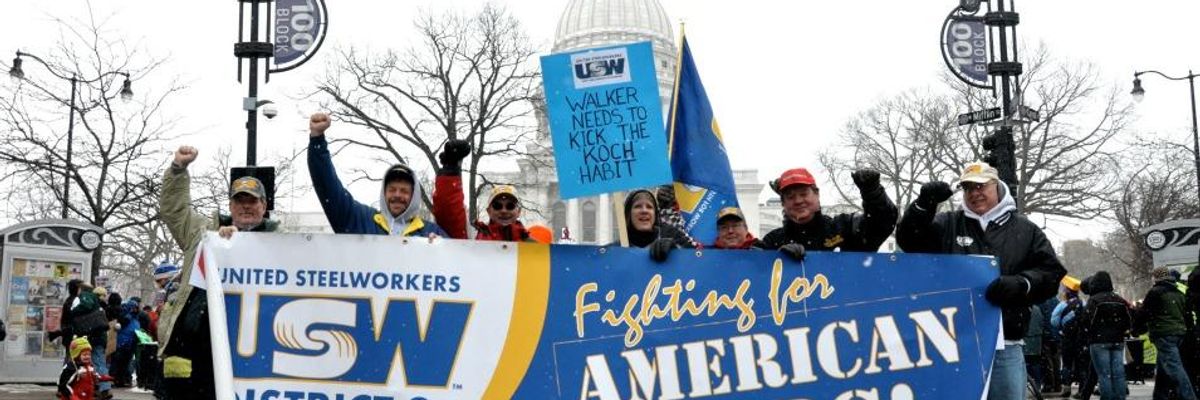Hard work, we're told, always pays off. Sure it does -- ask a farmworker, a roofer, or a home health aide. In our economy, those doing the hardest work get the worst pay, the weakest job protections, the least respect and zero say in the way things work. Such laborers are the downest and outest people in our country's workforce, totally vulnerable to the boss' whims and not even allowed the legal right to organize for better treatment.
So what can they do? Organize!
To hell with taking "no" for an answer. Although these workers are poorly paid and treated, they're rich in spirit. Told they weren't allowed to organize, they went out and did it anyway. Groups such as the Coalition of Immokalee Workers in Florida's vast agribusiness fields, the National Day Laborer Organizing Network and the National Domestic Workers Alliance have formed within occupational categories to rally and be advocates for millions of the hard-hit, previously voiceless and largely invisible people who do the back-breaking, sweaty, insecure, exhausting and thankless -- yet essential -- labor in our society.
Just bonding together as common laborers in this field or that has been a remarkable achievement. More remarkable, the bonds have held and attracted others to join, because the groups' actions have produced results -- from wage increases and bargaining rights to republic recognition and some respect.
Now comes the most remarkable advance by these groups of "powerless" workers: They have recognized the greater power of coalition -- a lesson that the larger, richer, established progressive groups need to learn, pronto. Four years ago at a gathering in Detroit, a "group of groups" organized themselves into the United Workers Congress, including nine occupational sectors: day laborers, domestic workers, farm workers, restaurant workers, formerly incarcerated workers, guest workers, restaurant workers, workers in right-to-work states, taxi drivers and workfare workers.
What they have in common is that all are excluded, either by complicit government policy or duplicitous employers, from the right to organize and bargain collectively for just treatment on the job.
Instead of demanding that this right be extended to them as a legal matter, the coalition has elevated its demand to a moral level, reframing the right to organize as a fundamental human right that belongs to everyone and cannot be abrogated by law.
The human rights construct lets UWC members take their campaigns directly to the public, where their calls for justice resonate and get better support than they would inside a courtroom or legislative hall. After all, as the coalition notes, "The problems facing excluded workers are not theirs alone. The struggles they face -- low wages, unstable employment and no labor protections to speak of -- are the struggles of growing numbers of working class people in the United States.
With a dash of gumption and a sharp sense of old-time labor outrage, the "un-organizable" are organizing. Then, with no phony hang-ups about protecting "our turf," these young insurgent groups recognized the obvious: By teaming up, they could, in their words, "leverage power and resources that would otherwise be impossible with one sector or alliance on their own." While that's obvious, most progressive groups have seemed allergic to doing it, so there's another lesson the young are teaching.
Also, UWC is reaching beyond our borders to strengthen their coalition. Knowing that New Deal labor law will not protect them and that relentless, low-wage globalization by multinational corporations won't be stopped by appeals to corporate patriotism, the groups are forging global alliances with unions, students, human rights organizations and others. For example, they helped create a Wal-Mart Supply Chain Organizing Committee that links to activists wherever Wal-Mart goes; UWC joined the Asia Floor Wage Alliance to help gain a minimum standard of pay for garment workers across Asia; the coalition organized a massive Global Day of Action against McDonald's last year in more than 30 countries. Whether here at home or around the globe, UWC organizes its campaigns on the moral high ground of basic human rights.
Those who are wondering how we build a full-fledged Populist movement to contend with the overall rise of oligarchic corporate power in our country would be smart to go to school with the United Workers Congress (unitedworkerscongress.org).
